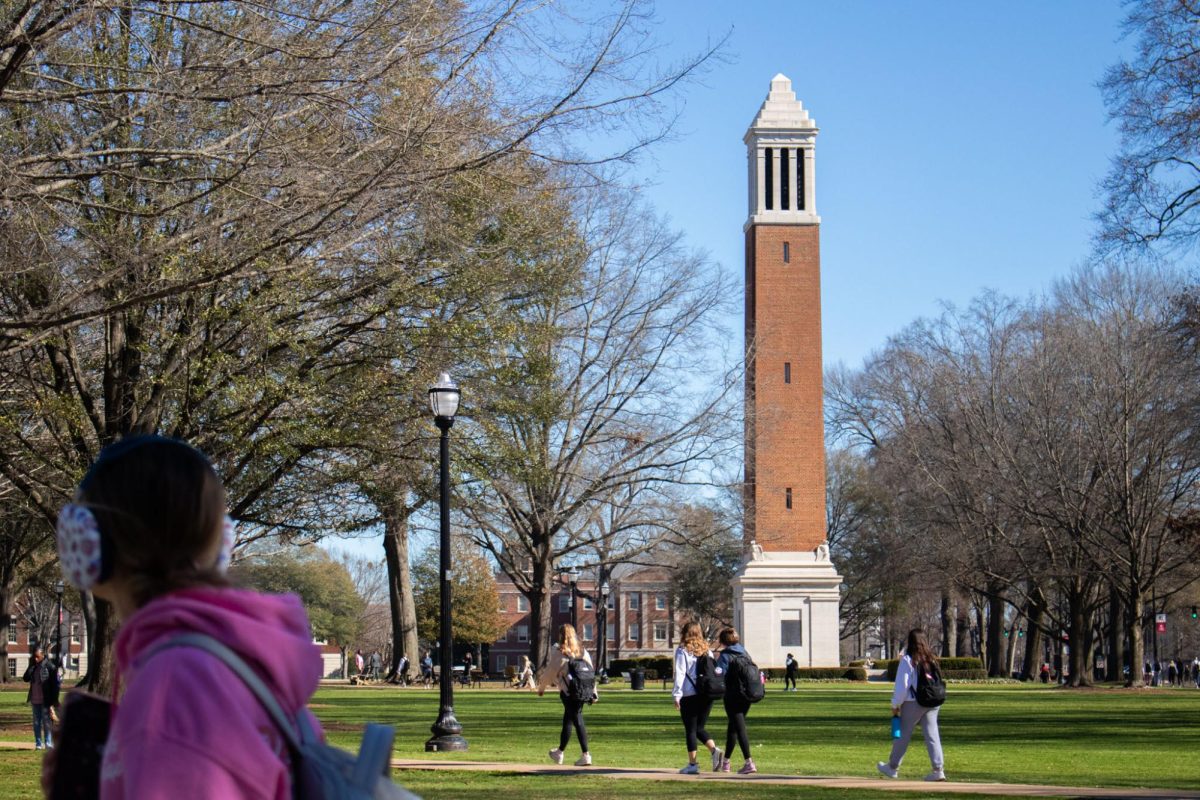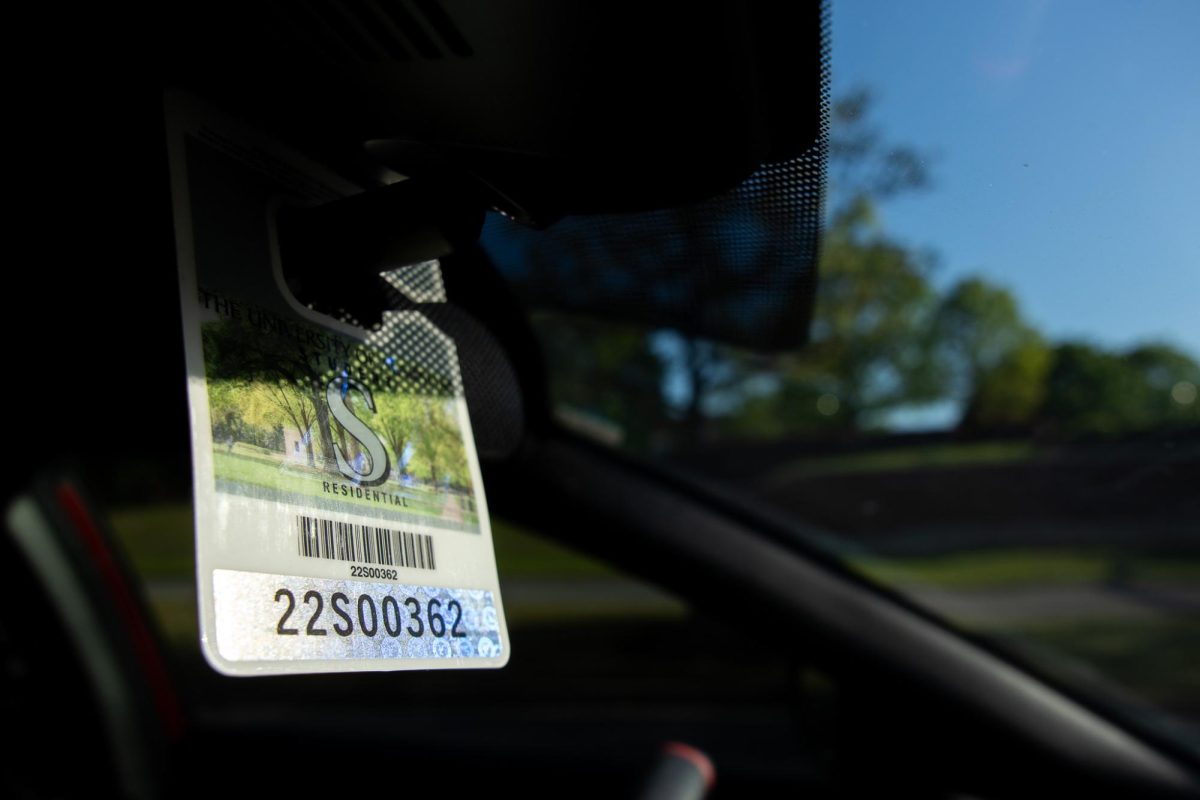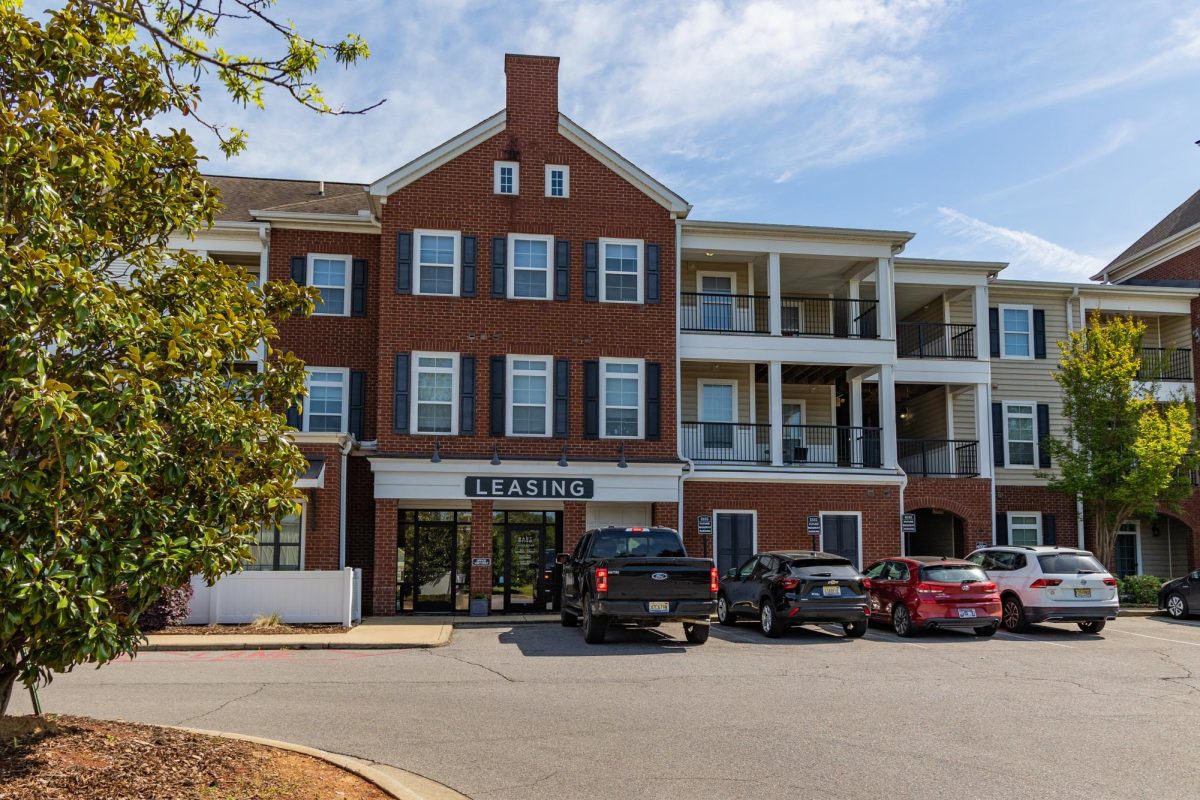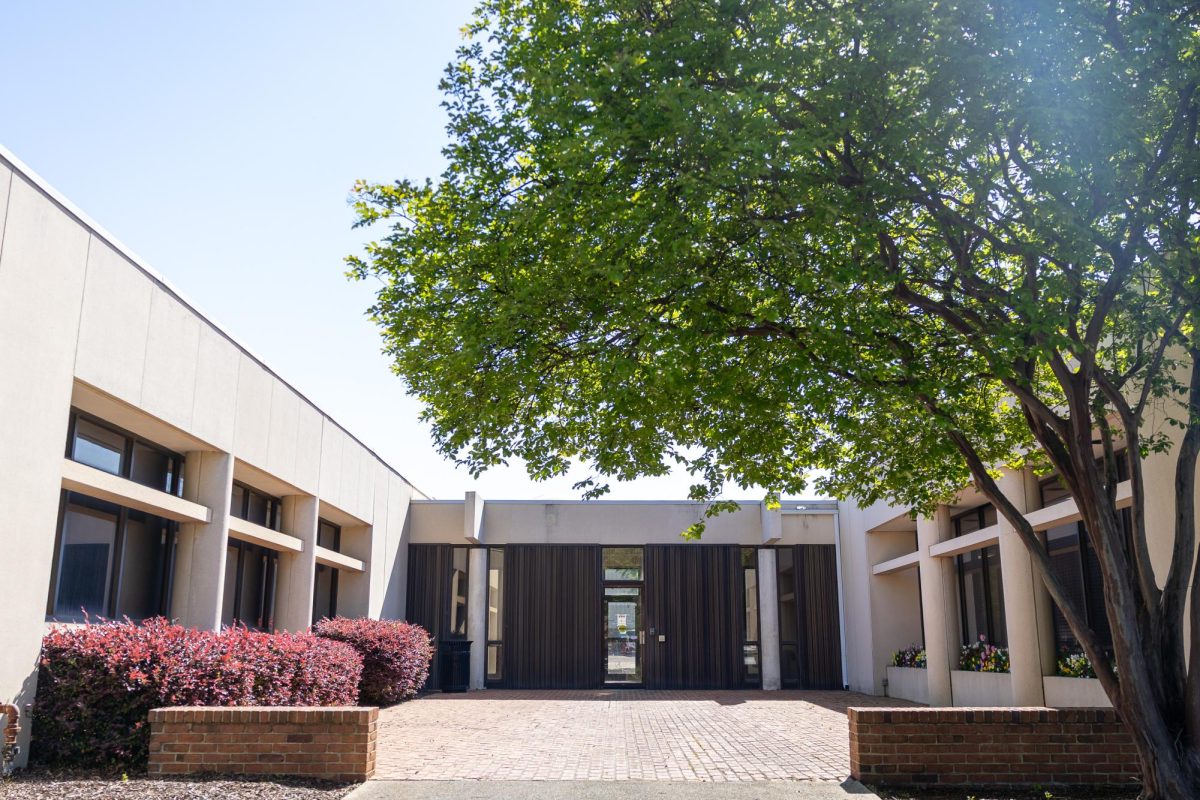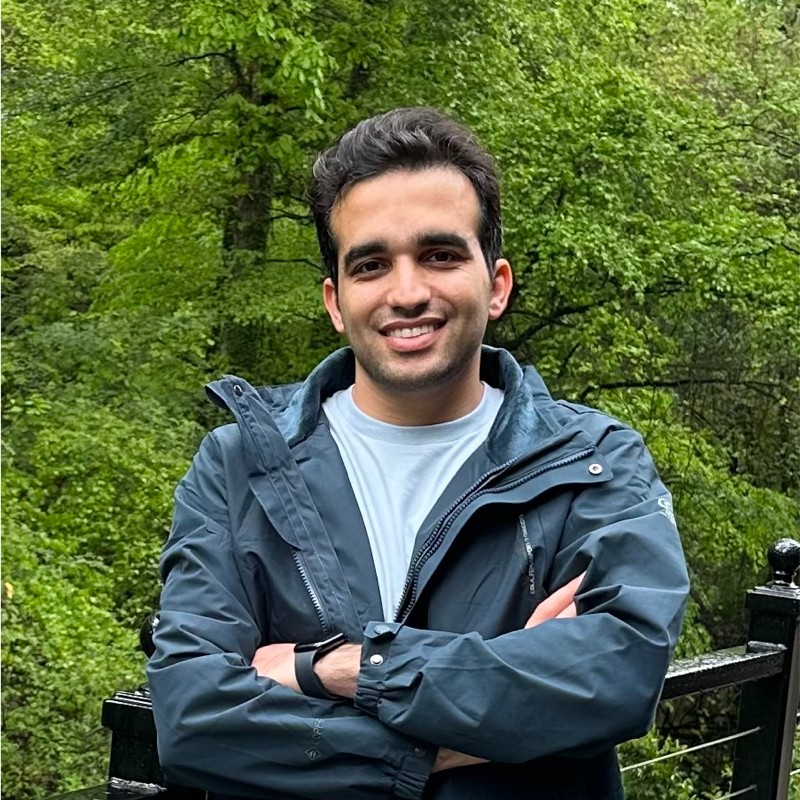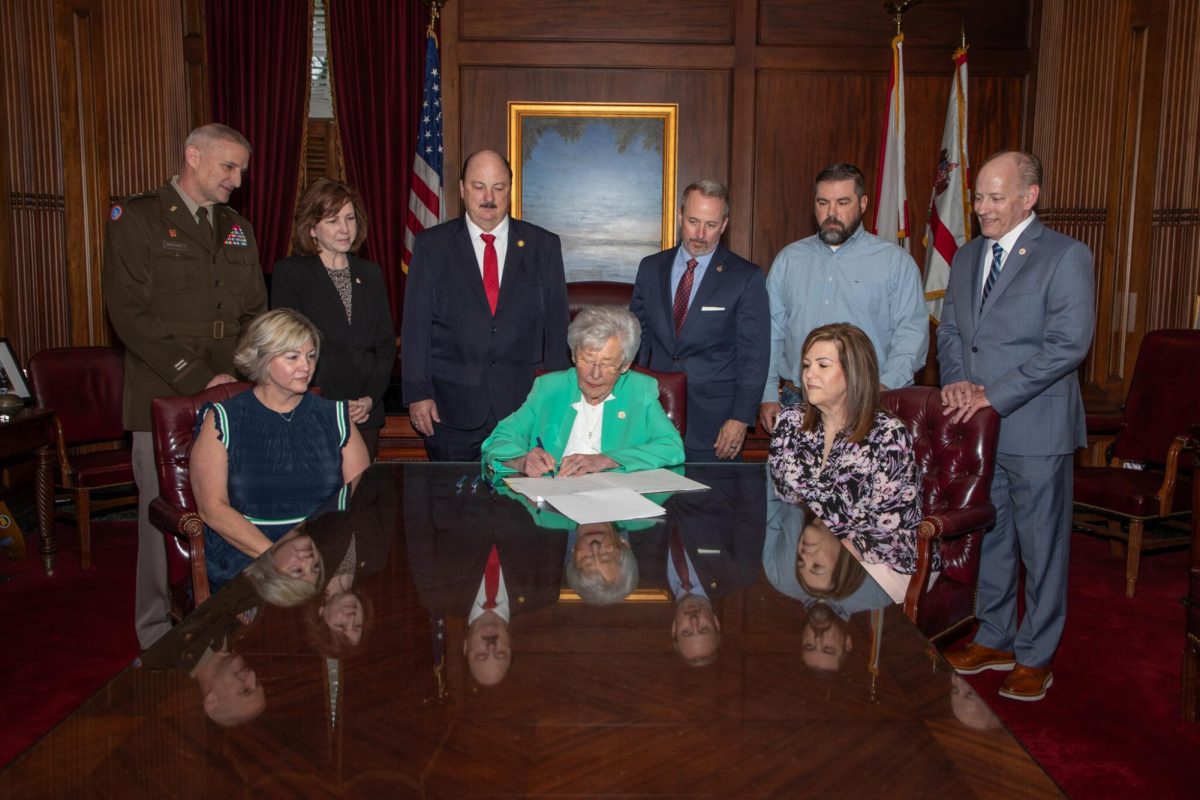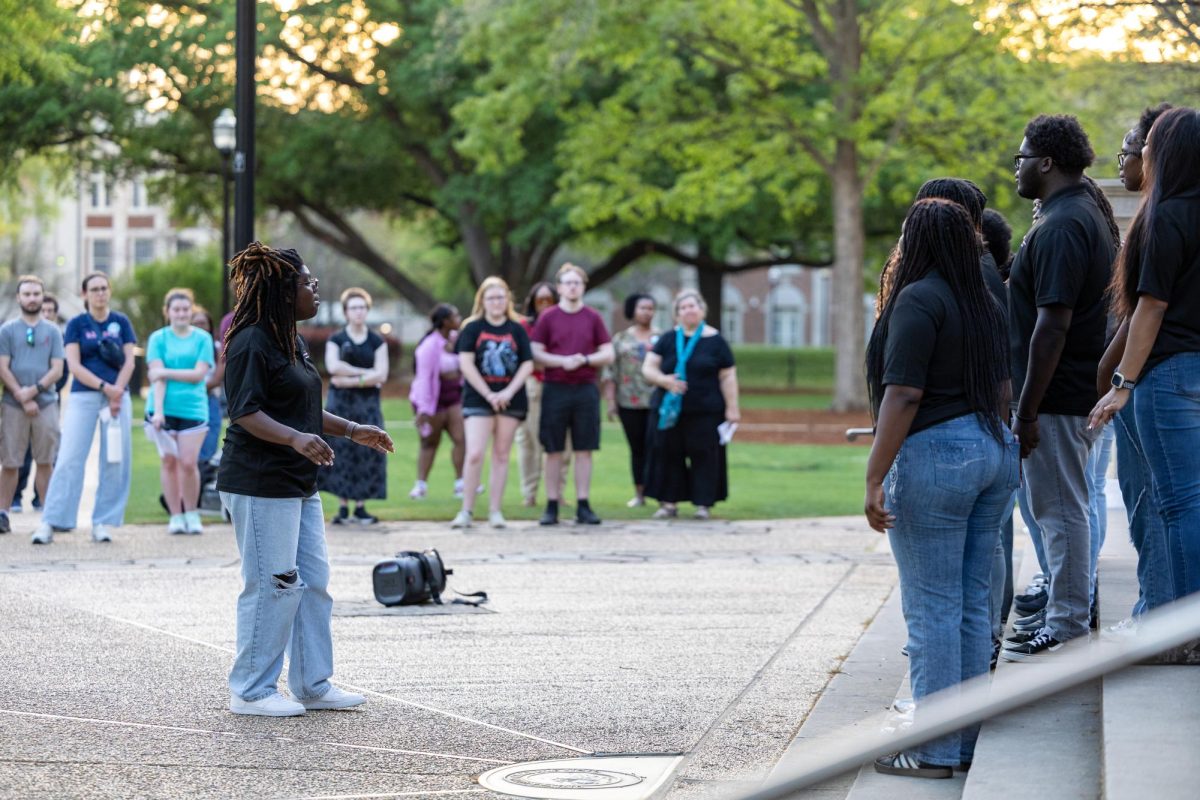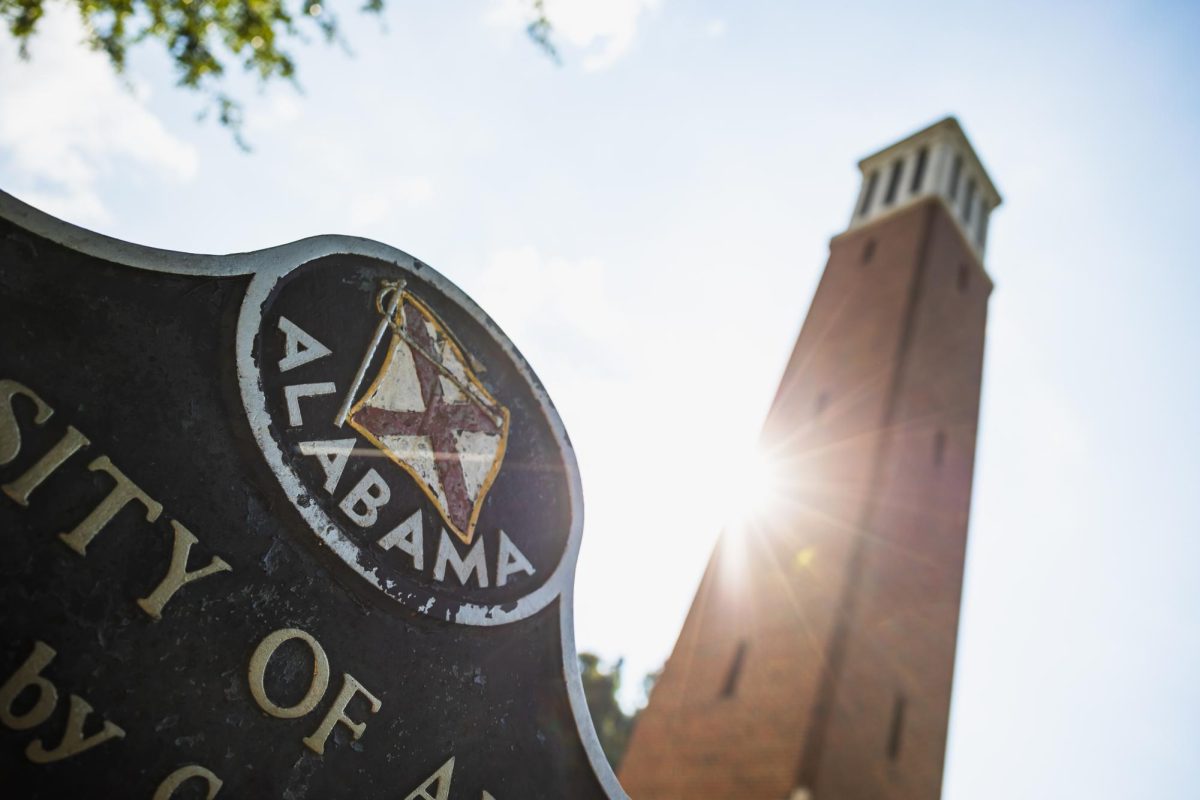At 2 p.m. on Nov. 13, a sit-in protest in support of diversity, equity and inclusion initiatives was scheduled to occur on the Quad. Instead, the UA School of Social Work asked a professor involved in the protest’s planning to cancel it just hours before it was set to begin, threatening the professor with termination.
Sierra Blair and Bailey Megowen are juniors studying social work who helped organize the protest and came together to regroup after it was canceled and then uncancelled on the day of.
“This event was supposed to be a way for students to show their support of DEI initiatives on campus, because after SB129 took away a lot of services, students feel unheard,” Megowen said, referencing Senate Bill 129, an Alabama law that went into effect Oct. 1, which prevents public schools from funding DEI programs. Since its introduction the bill has been heavily debated on college campuses all across the state.
The sit-in was rescheduled for Nov. 18, and about 30 people attended. Participants shared experiences pre- and post-SB129, as well as resources for students and staff.
Blair and Megowen are in the course SW 351 Anti-Oppression and Social Justice, and the protest was for an optional project in the class. Taught for 25 years by Cassandra Simon, an associate professor in the School of Social Work, the class has always featured a project in which students choose a social issue and then either protest or push for it in some way. Blair, Megowen and the other students in Simon’s class independently chose to focus on SB 129.
At 10:52 a.m. on the day of the protest, Schnavia Smith Hatcher, the dean of the School of Social Work, sent an email requesting the immediate cancellation of the sit-in.
“Despite the way you’ve framed it, it is difficult to see how this exercise is not tied to the classroom or does not create a situation where students are being forced to assent to a position and/or unwillingly take part in political activity. Similarly, the way this has been organized runs afoul of the Board’s commitment to institutional neutrality. For example, your correspondence with the grounds use permit office clearly indicates that this event is tied to your classroom (e.g., ‘students in my class will be hosting… ’, ‘We completed a grounds use permit form…’). As such, the class sit-in scheduled for today should be canceled immediately,” the email read.
The email went on to tell Simon that her students are welcome to independently “take advantage of the numerous opportunities the University provides to express themselves on campus,” but warned her that students need to “obtain appropriate and timely approvals” to do so.
It also said that Simon is free to engage in political activity as a private citizen if done in a manner consistent with the terms of the Faculty Handbook, but told her that “such political activity has no place in the classroom and this standard predates the passage of SB 129.”
Finally, Simon was explicitly warned that a failure to cancel the sit-in immediately could bear consequences, quoting Faculty Handbook Chapter 3.II.B which reads, “it is the responsibility of faculty members to recognize failure to comply with specific policies and procedures could lead to progressive disciplinary actions up to and including termination.”
Simon responded at 11:51 a.m., affirming that the student’s sit-in was tied to classroom experience and academic exercise, and that the Council on Social Work Education “clearly speaks to the need and responsibility we have to teach students to care about the dignity and work of others.”
She also said that the students chose their social issue completely independently without her suggestions: “I leave the classroom and when they make a decision they let me back in the classroom and let me know what they’ve decided. From there they begin working, I just try to make sure they follow University policy. If the class has voted on something that perhaps a student may feel uncomfortable with students also have the option to come to me and let me know and we will work out an alternative assignment for them, so nobody has ever been forced to work on anything.”
Blair and Megowen backed this statement up, saying that Simon left the classroom when they decided on their social issue and that the sit-in was 100% student run.
Simon asked for clarification on how this sit-in violated the faculty laws and guidelines and said, “I thought academic freedom was not affected.” She told her students that the event was no longer a part of their grade or connected to their class.
Simon told the dean that she did not appreciate the threat of termination but might have to see where disciplinary action goes, “not because I’m actively being insubordinate but because I’m confused and lack clarity on what we are allowed to do and not to do.”
She alerted her students of the University’s statement at noon and the event was canceled two hours before it was set to begin.
At 1:39 p.m., nearly two hours after her response email, University provost James T. Dalton took over communication, writing to Simon and clarifying that “the issue at hand is that it’s a class assignment, a component of their grade can be viewed as sponsoring a program that promotes DEI.” After learning that Simon took the sit-in out of her grade calculations, the provost wrote, “My advice at this point in time is to immediately and clearly inform the students that they may continue with their gathering.”
The event had been canceled hours beforehand, and given 21 minutes to regroup, it was too late to continue on with the sit-in.
The class’s grounds permit form was completed and approved several weeks before the sit-in was scheduled to occur, meaning that the University had prior knowledge of the event and chose to request the cancellation on the day of.
The Crimson White contacted the dean of the School of Social Work and the provost of the University. Neither responded in time for publication.
Blair said that she thinks the University’s decision to cancel the protest was purposeful.
“We told them everything, the plan was to make sure that it was structured in a way that we would get approved, and they gave us the okay … and then the day of, that’s when they decided to break the news to us. So I definitely believe that they did this on purpose to stop us,” Blair said.
Simon’s class has chosen its own issues to tackle every year, including 2021’s highly controversial Delete Dixie campaign, but have only been shut down one other time. In the early 2000s the class was providing free HIV testing in the Student Center when the School of Social Work’s dean and the UA provost shut them down.
The School of Social Work is accredited by the Council on Social Work Education. Part of the guidelines the school must follow to maintain its accredited status requires that professors must teach the nine social work competencies, which include “Engage Anti-Racism, Diversity, Equity, and Inclusion (ADEI) in Practice” and “Advance Human Rights and Social, Racial, Economic, and Environmental Justice.”
Students in Simon’s class are upset and saddened by the University’s actions.
“Personally I find this type of censorship extremely disappointing, especially after coming into The University of Alabama because of the diversity that was promised to us,” Megowen said. “You see a lot of other things on campus that could be seen as divisive, but when we are trying to support initiatives trying to make students feel heard, we are silenced.”
Editor’s note: This story was updated Dec. 2 to add information about a rescheduled sit-in, which was held Nov. 18.



